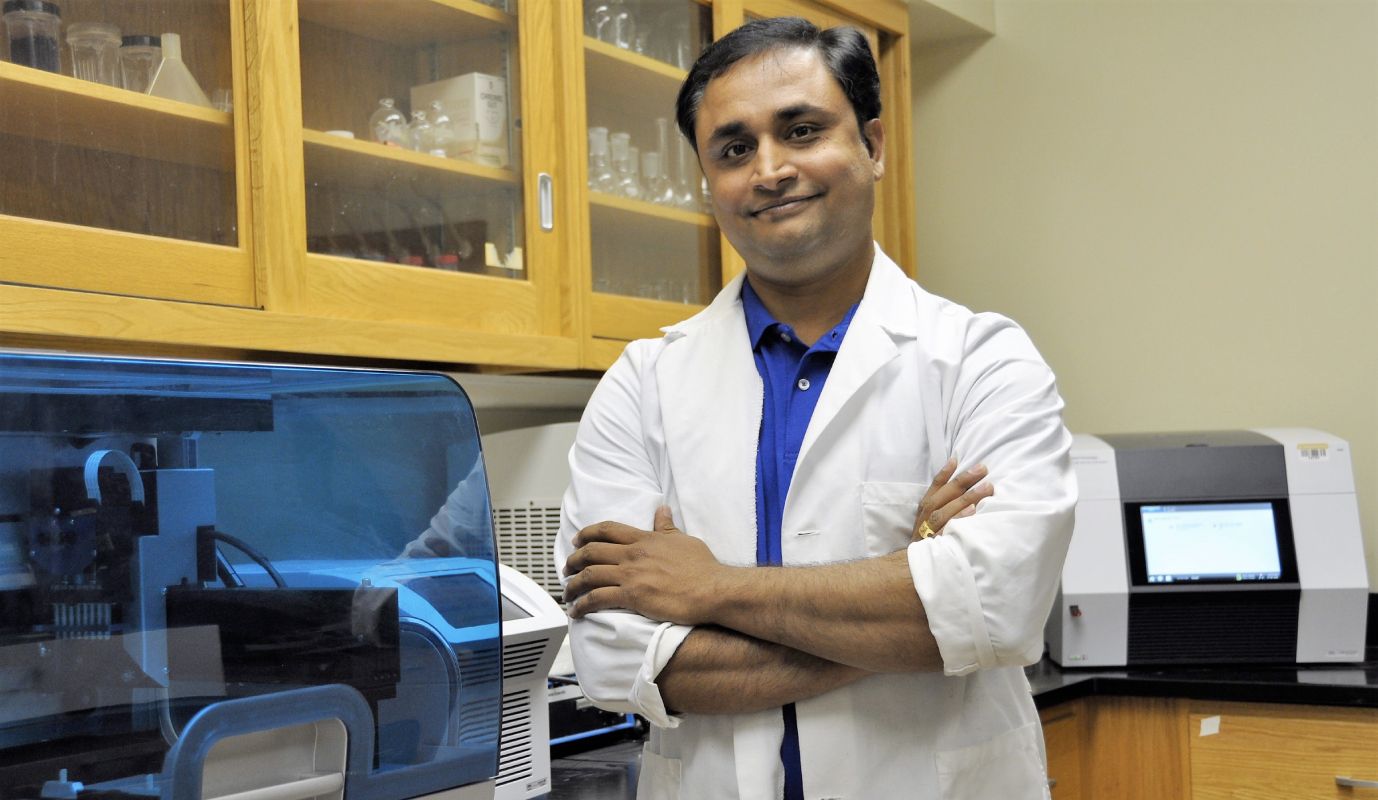Southern farmers could soon receive assistance in controlling a new invasive pest affecting their sorghum yield.
Sorghum is an important crop in the southern cropping systems. Farmers use this versatile crop as forage and silage for livestock. In addition, it serves as feed for the broiler (chicken) industry and is valuable for bioethanol production.
Since 2013, the country’s southern states have witnessed a new invasive pest (sugarcane aphid [Melanaphis sacchari]) that is severely reducing sorghum yield, forage quality and feed consumption.
For this reason, Fort Valley State University research assistant professor Dr. Somashekhar Punnuri is utilizing a half million dollar grant to investigate this highly damaging pest, which is affecting sorghum growers in the Southeast.
Awarded a $499,997 Capacity Building Grant (GEOX-2018-04866) by the U.S. Department of Agriculture’s (USDA) National Institute of Food and Agriculture (NIFA), Punnuri aims to develop new sorghum varieties that resist the sugarcane aphid and to strengthen the research capacity in plant breeding activities at FVSU.
He is collaborating with Drs. Joshua Peschel with Iowa State University and Jason Wallace with the University of Georgia (UGA). Other partners include Drs. Xinzhi Ni, Karen Harris-Shultz and Joseph Knoll with the USDA’s Agricultural Research Service (ARS) in Tifton, Georgia.
“We want to know every detail about this pest that is damaging sorghum and how we can control it,” Punnuri said.
To carry out this three-year mission, the research assistant professor and his colleagues are developing a field-based robot to help increase the precision in phenotyping for sugarcane aphid damage and to facilitate accelerated plant breeding.
“Phenotyping involves quantifying and characterizing a plant’s physiological growth and biochemical properties that attribute resistance to the plant,” Punnuri explained. “We are deploying speed breeding for developing resistant varieties in sorghum that can give a good yield.”
Currently using visual scoring for sugarcane aphid damages, Punnuri said this technique is labor and time intensive.
“These constraints in field phenotyping further necessitate the use of machines for high-throughput (HTP) phenotyping,” he said. “The development of suitable HTP platforms such as robotic-based systems can be very powerful.”
HTP phenotyping allows for Punnuri and his team to investigate the underlying genetic cause of a plant’s resistance to the sugarcane aphid.
The FVSU scientist said they plan to use a diverse set of lines (sorghum association panel [SAP]) that utilize the allelic diversity in sorghum for the development of insect resistant varieties using genome-wide association studies (GWAS).
The SAP is a collection of photoperiod-insensitive breeding lines that are racially, geographically and phenotypically diverse. Punnuri and his team first plan to establish an insect rearing facility on FVSU’s campus. He will acquire a growth chamber, a walk-in cooler for seed storage and a seed thresher to process and maintain the germplasm collection.
The objective is to obtain the SAP and increase the number of seeds for each accession in the greenhouse and field. The robotic phenotyping platform, designed by Iowa State University, will have multiple types of sensors for use in the field and greenhouse to quantify aphid populations and damages and to identify aphid-resistant lines. It will also measure plant traits such as plant height, stalk diameter and leaf area index.
The project group plans to conduct field trials on sorghum plots grown yearly in Tifton and on FVSU’s campus.
In addition to this research helping farmers, Punnuri said it could enhance the workforce at FVSU and provide additional training for existing personnel. It will further allow students in the Master of Science programs and those taking related courses to receive hands-on experience and assist in the development of a suitable phenotyping platform.
Additional opportunities will include trainings and workshops for students and research professionals on how to use genotyping and phenotyping and how it could benefit farmers. Punnuri said they also intend to give field demonstrations to educate farmers on sugarcane aphid and ways to control it.
“This project will enhance collaboration and cutting-edge research activities using HTP and genotyping technology,” Punnuri said. He added that this scientific study could further support other national programs such as the USDA-ARS area-wide pest management project headed by Ni. Punnuri serves as the co-principal investigator, and FVSU is one of the seven experimental sites for this project.
Ultimately, Punnuri said this NIFA project could yield scientific data that are fundamental and crucial to the agronomic improvement of sorghum as an important grain and bioenergy crop for feed and ethanol.
For more information about programs related to sugarcane aphid in sorghum, contact Punnuri at (478) 825-6519 or punnuris@fvsu.edu.

